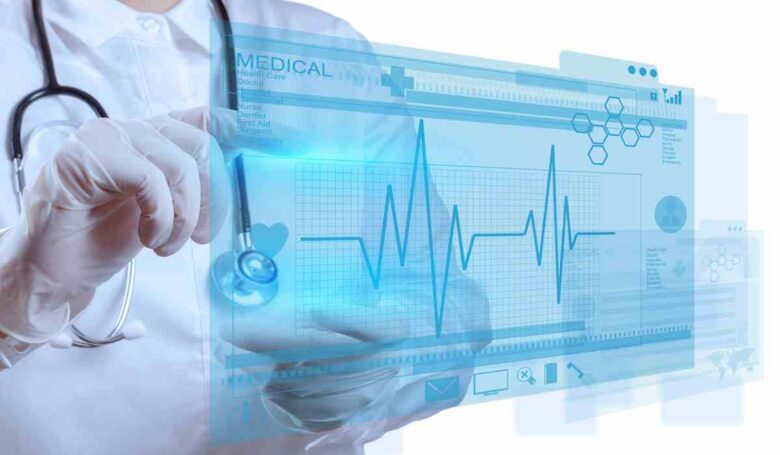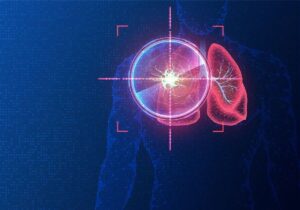The integration of modern medical technology into digital health represents one of the biggest shifts in the evolution of healthcare. Over the last 10 years technological advances have been incorporated into every aspect of medical practice and are changing the way the healthcare system is delivered, used, and regulated. From wearables and smartphones to sophisticated health apps and telemedicine platforms. Digital tools are changing the experience of patients and healthcare systems in general. Digital health extends beyond online doctor appointments. It includes electronic health records, mobile health applications, artificial intelligence in diagnostics, and real-time monitors for patients. This new age of technology for health has altered expectations, removing the traditional barriers and enabling both the patient and the provider to connect with their health in a much more interactive and efficient manner.
Changing the Way Patients Access Healthcare Services
Digital health has drastically changed the ways people are seeking and receiving medical treatment. Before, accessing an expert in healthcare required making an appointment, driving to a clinic, and enduring the crowded reception areas. Nowadays, many consultations are conducted online in the comfort of home via telehealth platforms or video conference. These options are particularly useful for those living in rural or underserved areas who might not have access to medical facilities or specialists. With the help of digital healthcare tools, individuals are able to consult doctors, get prescriptions, and then receive medical follow-up without ever leaving their home. This ease of access and convenience is not just time-saving but also helps ensure that more people receive medical attention whenever they require it.
Digital Health Records and Seamless Data Sharing
One of the key elements in digital health care is an electronic health record. It documents a patient’s medical information in the form of digital files. The system has eliminated the shortcomings and inefficiencies of paper-based records, resulting in access to a more well-organized, easily accessible, and secure method to handle patient data. With digital records, health professionals are able to quickly review test results, previous diagnoses, treatment history, and medications prescribed by doctors. This comprehensive overview leads to improved coordinated care, fewer medical errors, and quicker decision-making. Additionally, when multiple doctors are involved in a patient’s care, sharing information in a timely manner assures continuity in treatment, decreases the need for repeated testing, and increases the overall outcome.
Artificial Intelligence in Diagnosis and Decision Making
Artificial intelligence is among the most effective tools in the field of digital health. It has incredible potential for improving diagnosis and decision-making in clinical settings. AI algorithms are able to process huge quantities of medical information quickly and precisely in identifying patterns and anticipating outcomes that aren’t evident to a human practitioner. For example, in radiology, AI systems can detect fractures, tumors, or any abnormalities that appear in scans with a high degree of accuracy. In primary health care, AI can analyze symptoms as well as medical histories and laboratory results to help diagnose or suggest the next step. Aiding doctors in making educated choices, AI not only enhances precision but also cuts down on the time required for diagnosis and enhances the treatment planning. It also assists in regulating the health of the population by identifying patterns in outbreaks and by forecasting them.
Improving Patient Engagement and Education
Digital health has provided new avenues to connect with patients and inform them about their health. Through online portals, patients are able to check their laboratory results, review the summaries of doctor’s appointments, book appointments, and talk to their health care providers. This transparency and interaction builds trust and helps patients become active in their treatment. Informational content that is delivered via videos or written articles, as well as interactive tools available on platforms for health, helps people to better understand their ailments as well as their medications and treatment options. This knowledge-based approach leads to greater adherence to treatment programs and more meaningful discussions with healthcare professionals. A patient who is informed and active will be much more likely to adopt active steps towards their well-being and make informed choices to ensure their health and well-being for the long term.
Brings Preventive as well as predictive care into the spotlight
The most exciting aspect of the digital age is the shift from reactive towards preventive predictive health. Through the analysis of data from various digital sources, healthcare systems can spot risks, identify potential problems before they become serious, and suggest lifestyle changes to reduce the risk of developing diseases. Predictive analytics tools make use of previous data to predict the future trends and outcomes, which allows doctors to develop more customized and proactive health plans. For example, a patient who is showing early symptoms of heart disease, based on the wearable data and laboratory results, could receive targeted treatments before the condition gets worse. This method does not just improve the health of individuals but also lowers the cost of healthcare by eliminating hospitalizations and emergency medical care.
Conclusion
Digital health is not simply a trend; it is a paradigm shift that is altering the basis of modern medical practice. It provides a more connected and efficient as well as a patient-centered approach to healthcare. Technology acts as an intermediary between medical knowledge and daily life. The digital health system is making medicine more efficient, quicker, and more easily accessible through virtual consultations, mobile health tracking, AI-powered diagnostics, and real-time monitoring. Not only are they enhancing the efficiency of healthcare, but they are also altering the way patients perceive it. As the digital health system grows, it is a sign of a future in which health isn’t confined to hospitals and clinics but can be integrated into our everyday routines by empowering people and changing their lives.
FAQs
1. Digital health is what it sounds like? In simple terms?
Digital health leverages technology, including devices, apps, and software, to enhance the delivery and monitoring of healthcare services.
2. Does digital health remain secure and safe?
Yes, many digital health providers adhere to strict regulations and utilize encryption and data security measures to ensure that patient data is private and safe.
3. Do I trust health apps to treat my health condition?
Medical professionals have created numerous health apps. They can be useful tools; however, they should be utilized in conjunction with regular visits with your physician.
4. How does telemedicine function?
Telemedicine allows you to communicate with a physician or healthcare provider via video, chat, or even a phone, all without the need to visit an actual clinic.
5. What are the advantages of digital health when it comes to chronic illnesses?
Digital health tools can track health conditions in real time and alert doctors of changes in the condition, assist patients in keeping track of their medications, and help reduce hospital visits.




